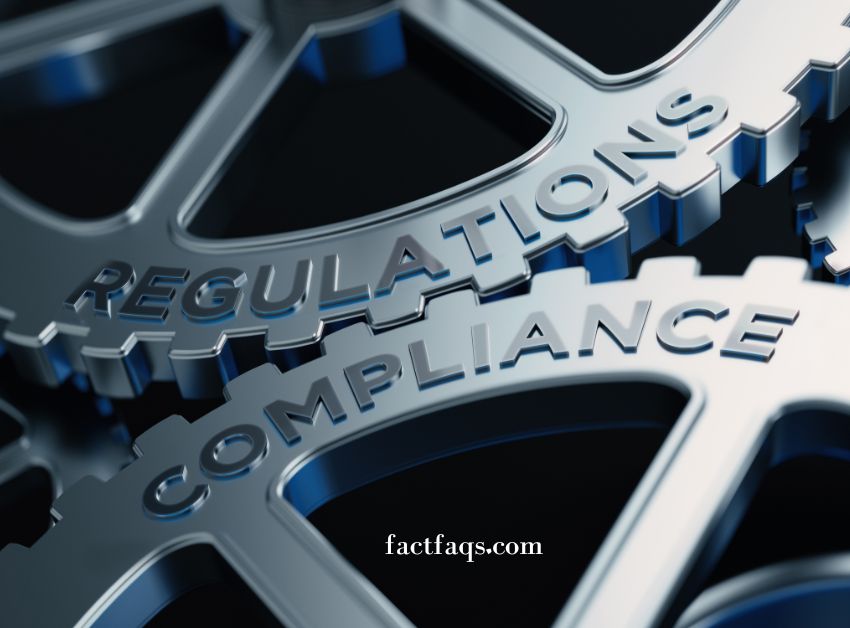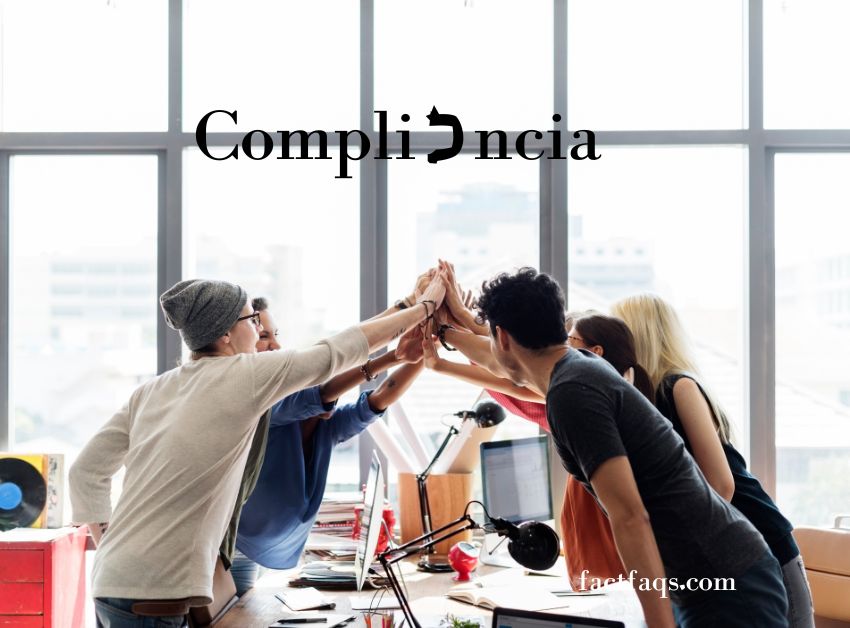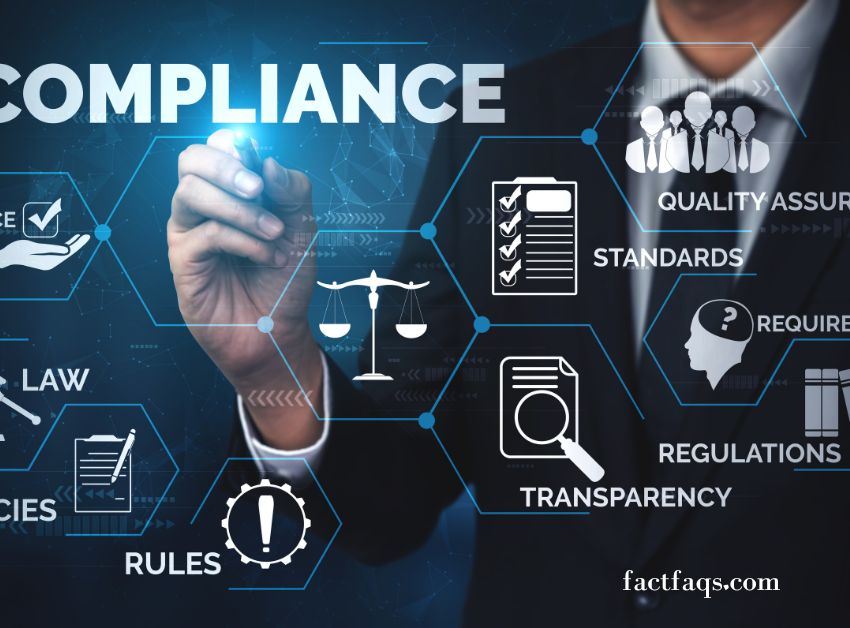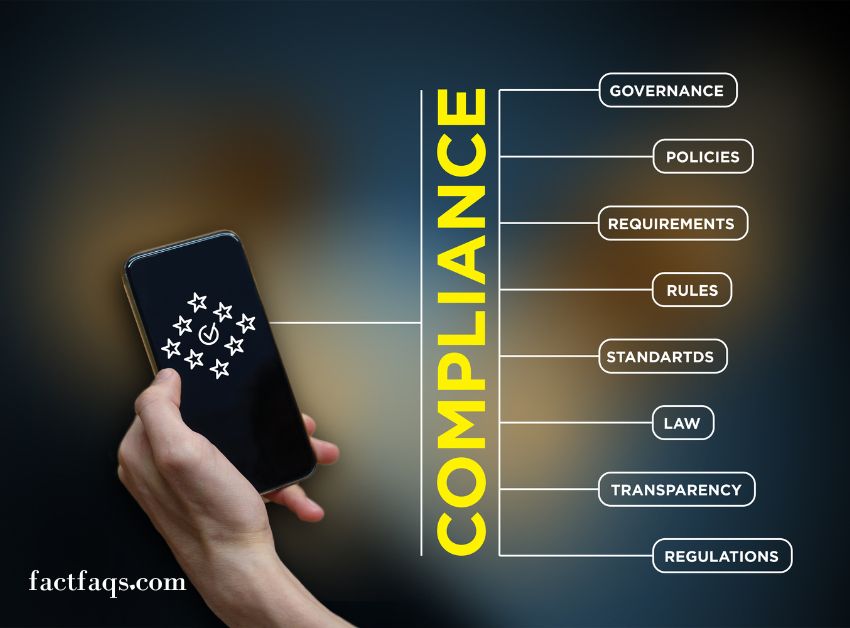Compliância refers to the act of adhering to rules, regulations, and legal requirements. In today’s increasingly regulated business landscape, organizations must prioritize compliância to ensure they operate within the boundaries set by authorities.
Compliância encompasses the process of understanding, implementing, and monitoring laws, rules, and standards relevant to a particular industry or jurisdiction. By maintaining compliância, businesses can mitigate risks, avoid legal penalties, safeguard their reputation, and build trust among stakeholders. This article delves into the importance of compliância in various sectors, explores the key elements of a robust compliance program, and provides insights into how organizations can effectively navigate complex regulatory frameworks to achieve sustainable success.
Understanding Compliância And Its Role In Business Success
Definition of compliância: Compliância refers to the adherence and conformity of a company to the set rules, regulations, and standards within its industry or jurisdiction. It involves ensuring that all legal, ethical, and industry-specific requirements are met.
Importance of compliância in business: Compliância plays a vital role in business success for several reasons. Firstly, it helps in avoiding legal issues and penalties by ensuring that the company operates within the boundaries of the law. This helps in building a strong reputation and maintaining the trust of customers, partners, and stakeholders.
Why compliância should be a top priority for companies: Compliância should be a top priority for companies as it helps in identifying and mitigating risks, thus safeguarding the business from potential harm. It also promotes transparency and accountability within the organization, leading to improved operational efficiency and reduced instances of fraud or misconduct. Moreover, compliance with industry standards and regulations can provide a competitive advantage and open new opportunities for growth.
In conclusion, compliância is crucial for businesses to navigate the complex regulatory landscape, mitigate risks, and achieve long-term success. By prioritizing compliance efforts, companies can build a solid foundation for growth and sustainability.

Key Regulations And Standards Shaping Compliância
The world of business today is governed by a myriad of regulations and standards that companies must comply with to ensure their operations are legal, ethical, and secure. Compliância, as a concept, encompasses the need for businesses to meet these requirements. Let’s take a closer look at some of the major regulations and standards that greatly impact compliância.
| Regulations | Standards |
|---|---|
| General Data Protection Regulation (GDPR) | ISO 27001 |
| Sarbanes-Oxley Act (SOX) | PCI DSS |
| Health Insurance Portability and Accountability Act (HIPAA) | ISO 9001 |
Compliance with these regulations and adherence to industry standards is crucial for businesses across various sectors. Ensuring compliance can boost brand reputation, establish customer trust, mitigate risks, and enhance data security. By following the necessary regulations and standards, businesses can create a solid foundation for sustainable growth and long-term success.
Common Challenges In Achieving Compliância
Achieving compliância can be a challenging task due to various obstacles that businesses face, including regulatory complexity, lack of resources, and cultural resistance. Successfully navigating these hurdles requires a comprehensive strategy, diligent planning, and proactive measures.
Challenges in achieving compliância often arise when it comes to identifying and understanding potential compliance risks. It is crucial to carefully analyze and assess all aspects of the business operations to ensure compliance with relevant regulations and standards. However, this task can be daunting due to the complexities involved in different industries and jurisdictions. Balancing compliance with operational efficiency is another challenge that organizations face. While maintaining compliance is essential, it should not hinder the smooth operation and growth of the business. Finding the right balance requires careful planning and implementation of processes and systems that streamline compliance activities without negatively impacting productivity. Additionally, cultural and organizational barriers can impede compliância efforts. Organizations need to address these barriers by fostering a compliance-centric culture, providing adequate training, and establishing clear communication channels throughout the organization. Overcoming these challenges is crucial for organizations to achieve and maintain compliance in an ever-changing regulatory landscape.

Building A Compliância Framework For Your Business
Building a Compliância framework for your business involves several key steps. The first is assessing your compliance needs and priorities. This involves conducting a thorough analysis of your industry-specific regulations and requirements. Identify which regulations apply to your business and prioritize them based on their impact.
Once you have a clear understanding of your compliance needs, the next step is to develop policies and procedures. These should outline the specific actions your organization will take to ensure compliance with relevant regulations. These policies should be clearly documented, easily accessible, and regularly reviewed and updated.
Implementing compliance training and awareness programs is also crucial. This ensures that all employees understand their compliance responsibilities and are equipped with the knowledge and skills to fulfill them. Training should be ongoing and tailored to different roles within the organization.
Remember, building a Compliância framework is an ongoing process. It requires continuous monitoring, measurement, and improvement to ensure that your business remains compliant with changing regulations and industry best practices.
Integrating Technology For Effective Compliância Management
Integrating technology plays a crucial role in effective compliância management. By leveraging technology, organizations can enhance their compliance monitoring and reporting processes. Data analytics and automation are vital tools that contribute to efficient compliância processes.
Implementing technology-driven compliância management systems offers several benefits. It enables organizations to streamline their compliance activities and ensure accurate and timely reporting. These systems provide real-time insights and alerts to identify and mitigate compliance risks proactively.
Moreover, technology automates routine tasks, reducing manual errors and saving time for compliance professionals. It also facilitates data analysis to identify patterns and trends, enabling better decision-making and strategic planning.
| Benefits of Technology-Driven Compliância Management Systems |
|---|
| Streamlined compliance activities |
| Accurate and timely reporting |
| Real-time insights and alerts |
| Proactive risk mitigation |
| Automated routine tasks |
| Reduced manual errors |
| Improved efficiency and time savings |
| Data analysis for better decision-making |
Best Practices For Maintaining Compliância
Regular monitoring and auditing of compliance activities is a crucial practice for maintaining compliância within an organization. This involves conducting regular reviews and assessments of compliance procedures and policies to ensure they are being followed effectively. By monitoring compliance activities, organizations can identify any potential risks or areas of non-compliance and take necessary actions to address them.
Establishing a strong compliance culture within the organization is another best practice for ensuring compliância. This involves creating a culture where compliance is valued and embedded in the day-to-day operations of the organization. This can be achieved through effective communication, training, and awareness programs, as well as by providing clear guidelines and policies for employees to follow.
Responding to compliance breaches and implementing corrective actions is also essential for maintaining compliância. In the event of a compliance breach, organizations should have a well-defined process in place to investigate and address the issue promptly. This may involve conducting internal investigations, implementing corrective actions, and providing training or additional support to prevent similar breaches in the future.

The Future Of Compliância And Evolving Regulatory Landscape
The future of compliância is constantly evolving along with the regulatory landscape. As businesses navigate through this changing environment, it is essential to stay updated on emerging trends and their impact.
Anticipating regulatory changes is crucial for businesses in order to understand their implications. With regulations becoming more complex and stringent, organizations need to be proactive in adapting to these requirements. This is especially true in the digital age, where advancements in technology bring both opportunities and challenges in terms of compliância.
Businesses must prioritize compliance with the evolving regulatory landscape, as non-compliance can result in significant consequences, including financial penalties and reputational damage. Implementing robust compliance programs and staying abreast of regulatory updates will help organizations effectively manage compliância.
Also Read:
Why Monitoring Your Application is Crucial for Success
Case Studies: Successful Compliância Strategies In Various Industries
Case Studies: Successful Compliância Strategies in Various Industries
Real-world examples of businesses implementing effective compliância can provide valuable insights for organizations looking to enhance their compliance efforts. These case studies highlight the lessons learned from successful compliância initiatives and offer practical guidance for applying these insights to your own compliance endeavors.
In the banking industry, a major institution implemented a comprehensive compliância strategy to address regulatory requirements and protect customer data. By enhancing data encryption protocols, implementing robust internal controls, and conducting regular audits, the bank effectively minimized the risk of data breaches and demonstrated a commitment to compliance.
A healthcare organization focused on complying with strict privacy regulations by implementing secure electronic health records systems, training staff on data protection practices, and conducting regular compliance audits. This proactive approach not only ensured patient privacy but also strengthened the organization’s reputation as a trusted healthcare provider.
An e-commerce business prioritized compliância by adopting transparent pricing practices, adhering to consumer protection regulations, and ensuring secure online transactions. By building trust with customers, the company experienced increased sales and customer loyalty.
By examining these case studies, organizations can identify common strategies for success and tailor them to their specific compliância goals. Implementing effective compliance measures not only mitigates legal risks but also fosters a culture of trust and integrity.

Frequently Asked Questions For Compliância
Q: What Is Compliance?
Compliance refers to the process of adhering to laws, regulations, and industry standards to ensure ethical and legal practices within an organization. It involves implementing policies, procedures, and controls to mitigate risks and promote transparency.
Q: Why Is Compliance Important?
Compliance is crucial for businesses as it helps establish trust with stakeholders, enhances reputation, and avoids legal and financial penalties. It also fosters a culture of integrity and accountability, reduces operational and financial risks, and promotes fair business practices.
Q: What Are The Key Components Of Compliance?
The key components of compliance include developing and enforcing policies and procedures, conducting regular audits and assessments, providing training and education, maintaining accurate records, and implementing reporting mechanisms and whistleblowing programs.
Q: How Can Compliance Benefit My Business?
Compliance can benefit your business by reducing legal and regulatory risks, improving operational efficiency, enhancing reputation and brand value, attracting investors and customers, increasing employee morale and productivity, and fostering a culture of trust and integrity.
Conclusion
As we wrap up this blog post on “Compliância”, it’s clear that prioritizing compliance is essential in today’s business landscape. By following industry regulations and guidelines, companies can safeguard their reputation, build trust with customers, and mitigate potential risks. By implementing effective compliance strategies, businesses can not only avoid legal consequences but also thrive in a competitive marketplace.
Remember, compliance is not just a requirement, it’s a crucial factor for long-term success. So, make compliance a priority and ensure the sustainability of your business.
